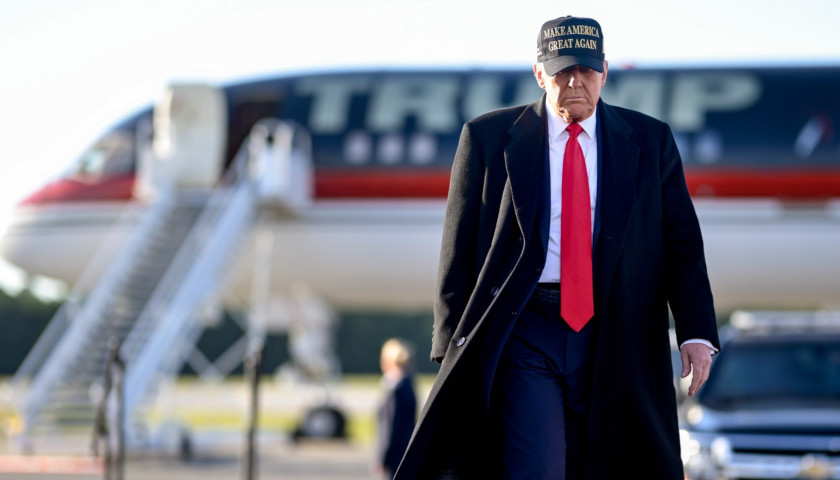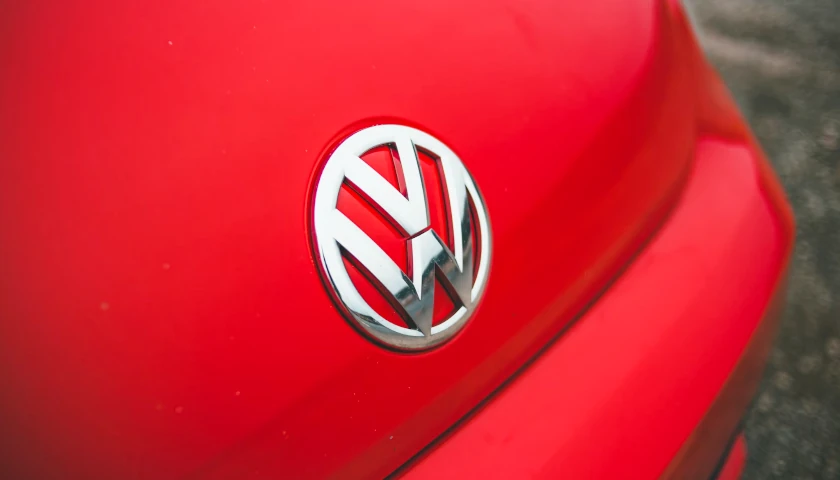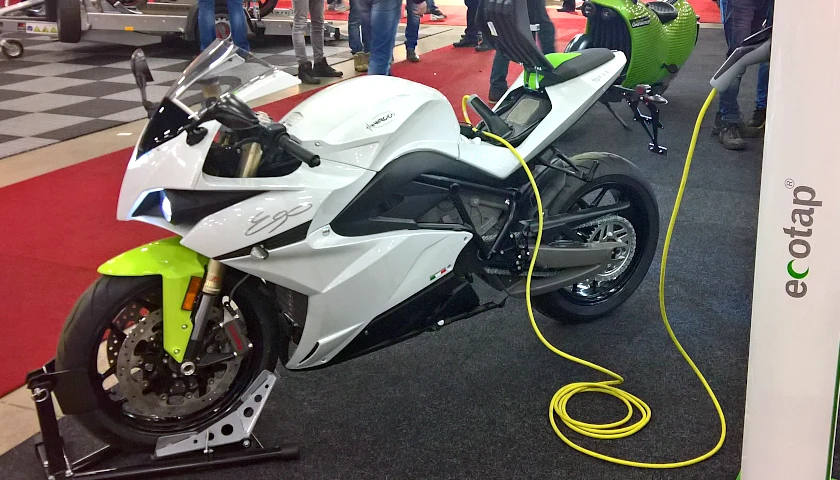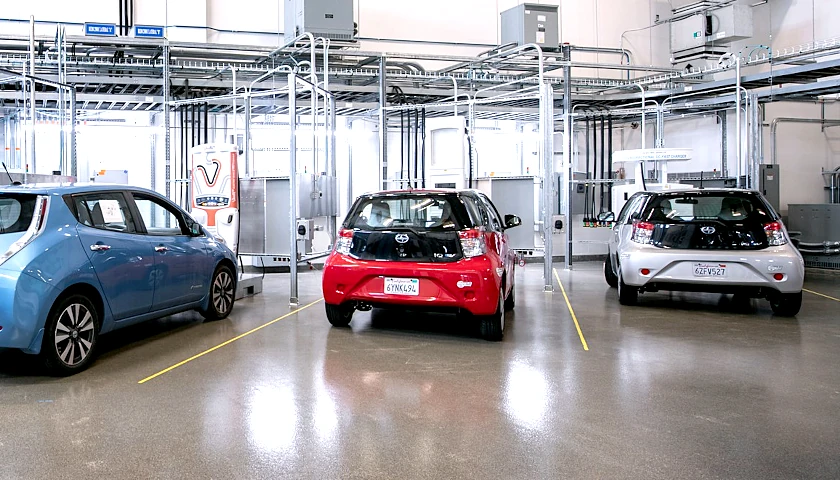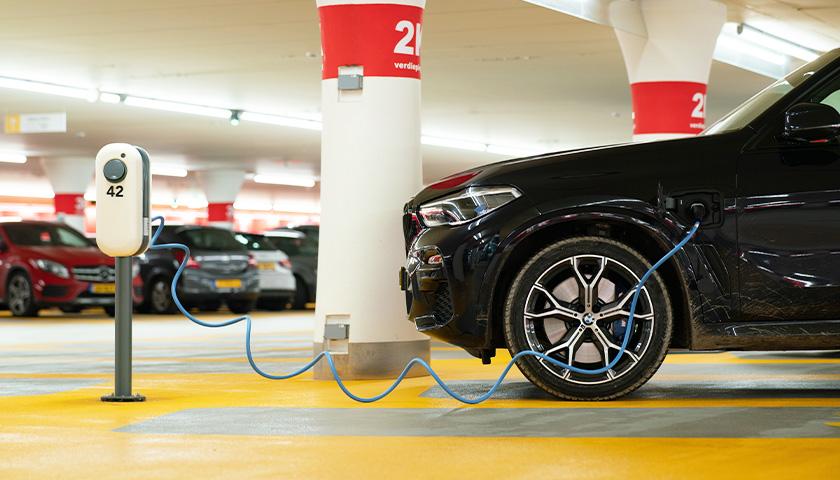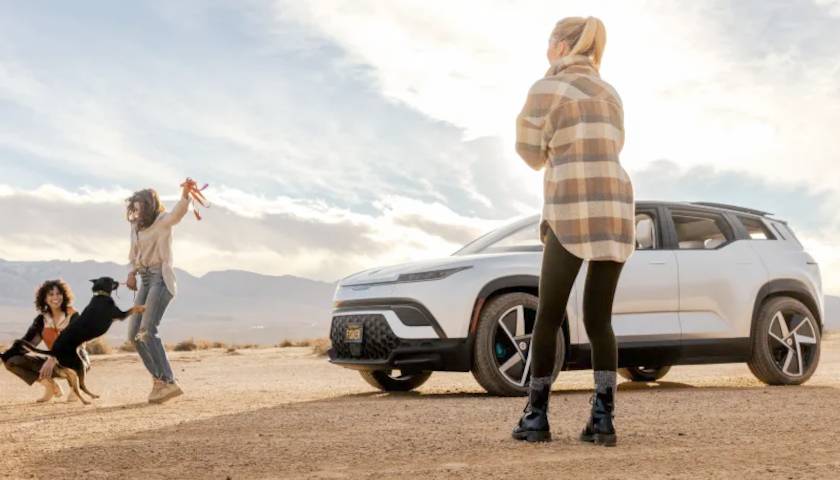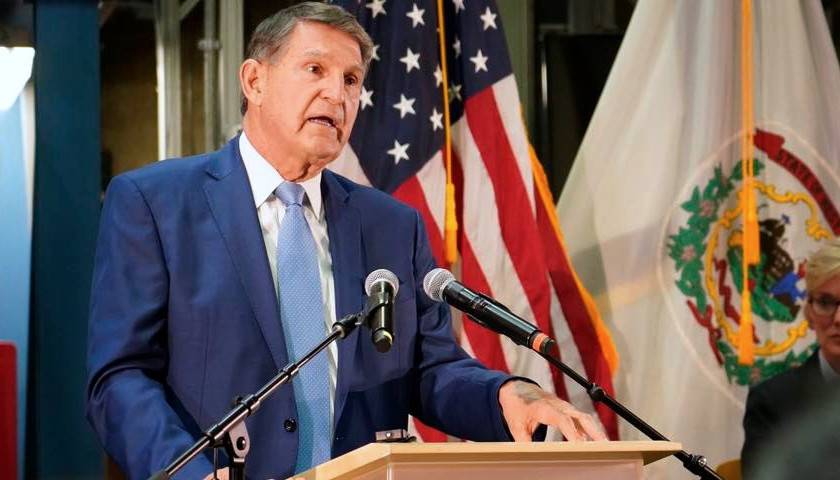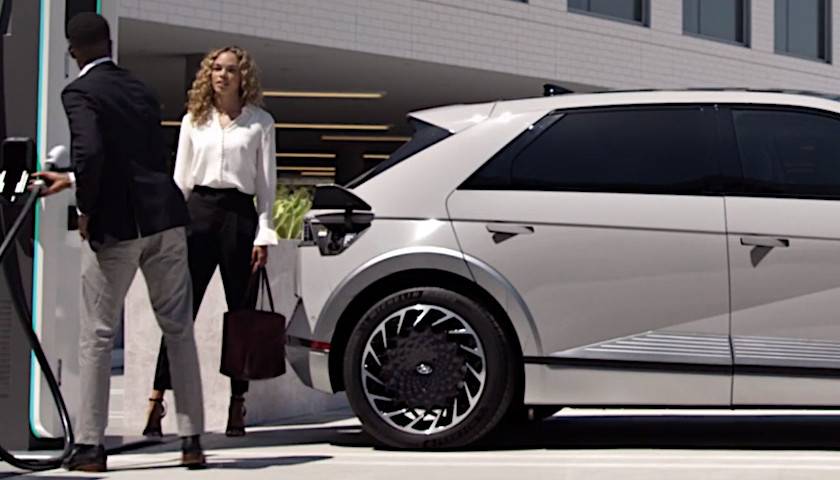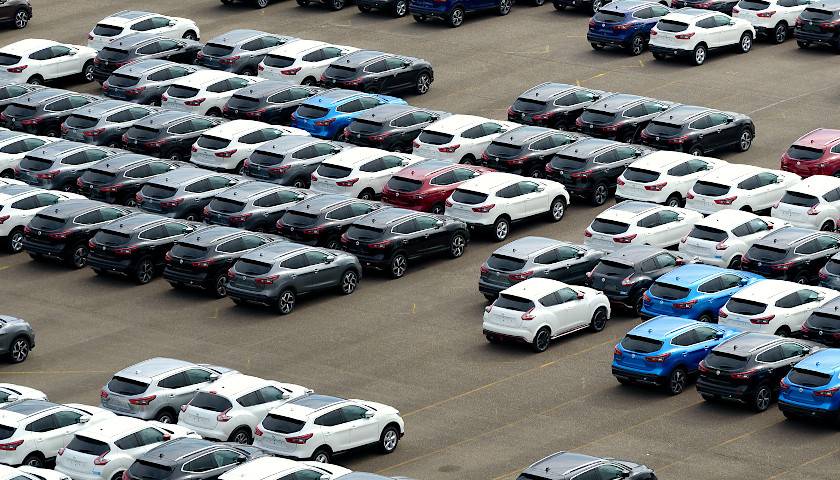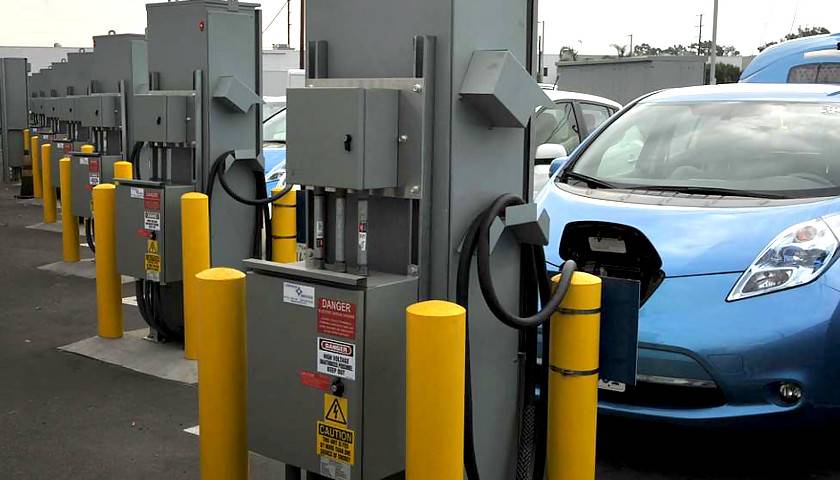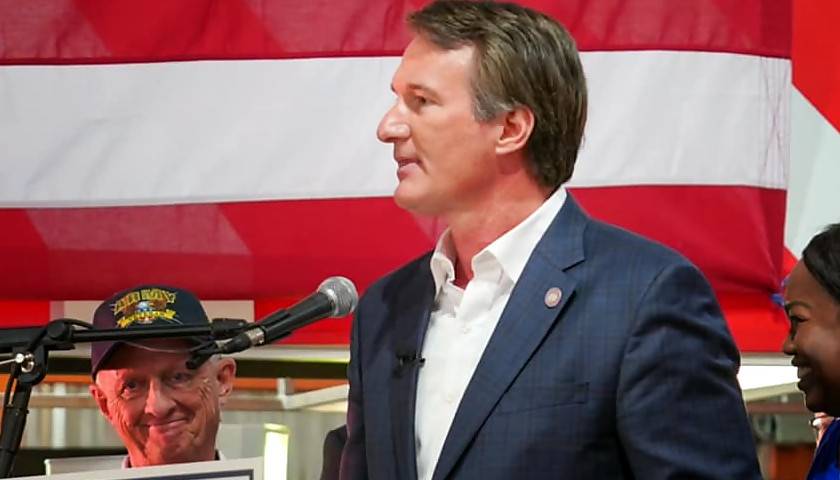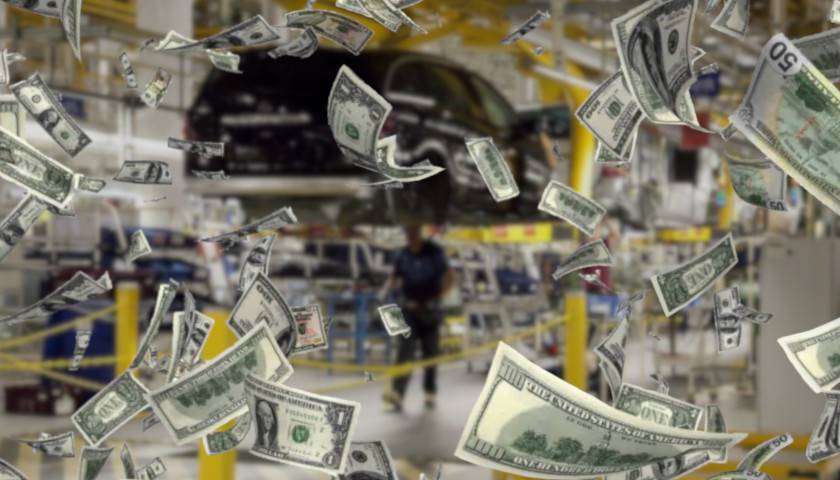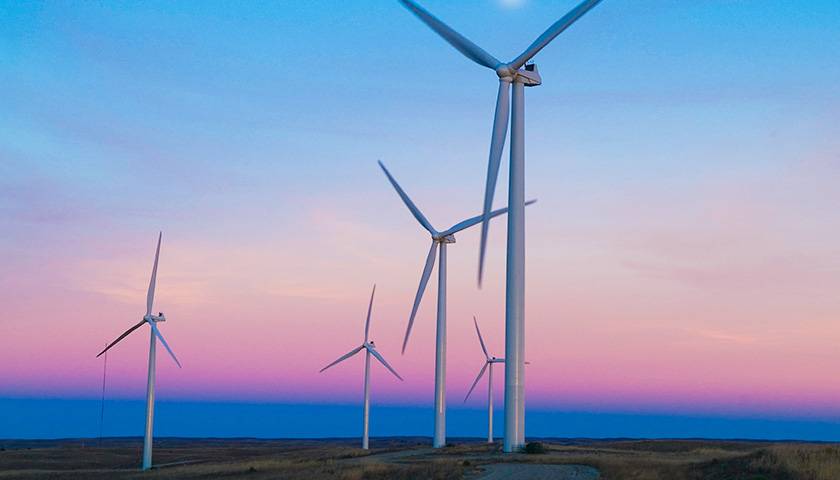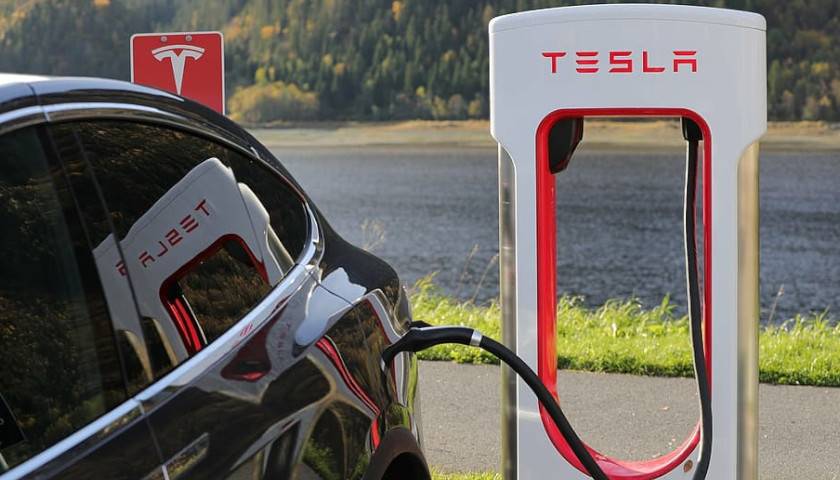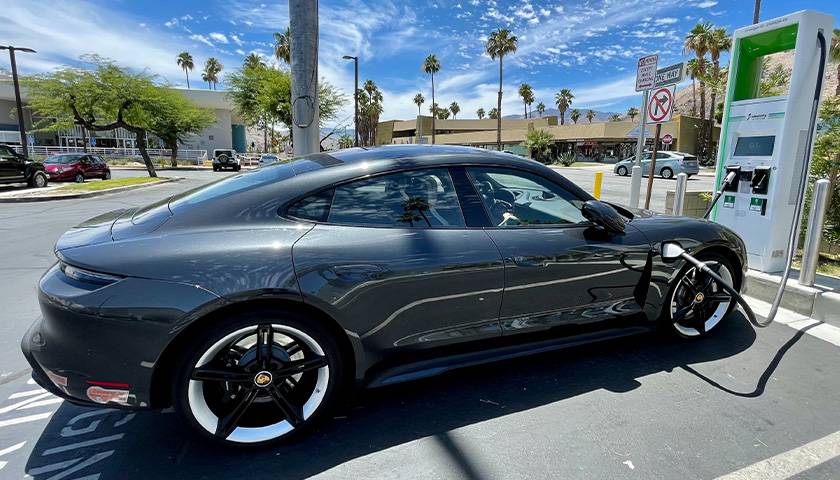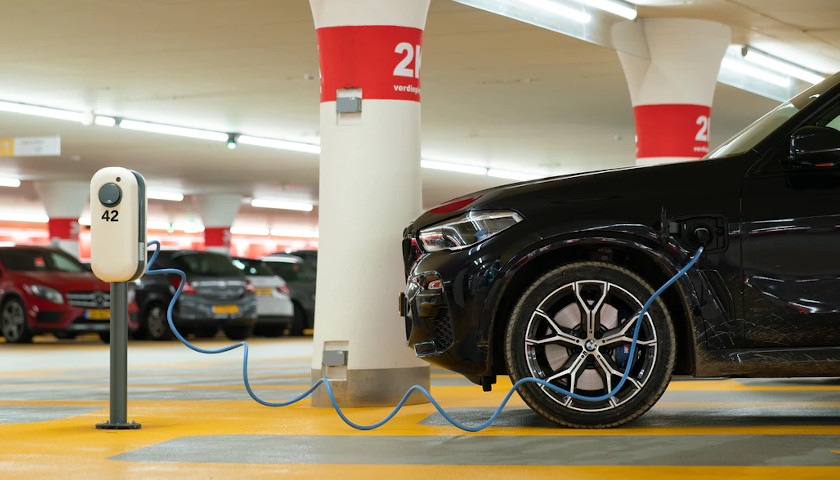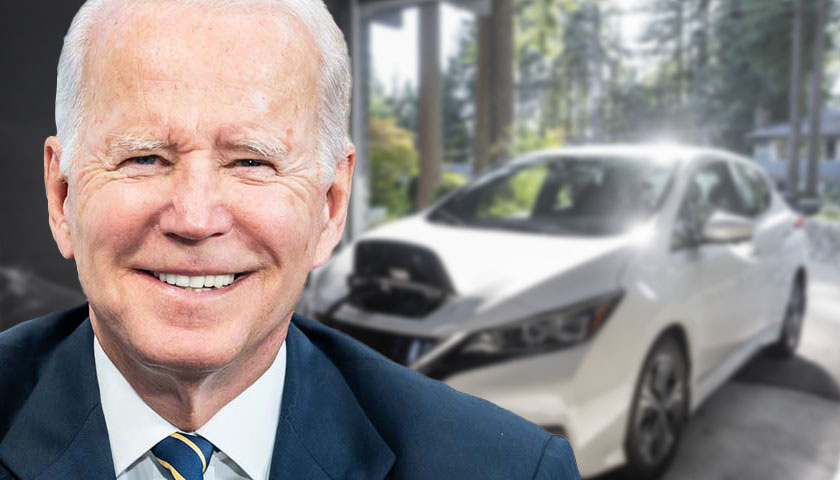President-elect Donald Trump made a multitude of “day one” promises throughout the campaign to begin work on an array of issues, setting himself up for an extremely busy first day back in office.
Read MoreTag: EV
‘Cannot Continue’: Major Automaker Hits the Gas on Cost Cuts amid Tepid EV Demand, Increased Chinese Competition
Volkswagen (VW) said Wednesday that it needs to cut costs amid slackening consumer demand for electric vehicles (EVs) and weaker car sales in China.
VW’s profits fell 64% in the third quarter of 2024, driving the company’s share price to its lowest level since October 2010. Now, the world’s largest automaker by sales is looking to lower its expenses, with VW’s top labor leader announcing earlier this week that the company was aiming to shut at least three of its German factories, slash wages 10% and lay off thousands of employees.
Read MoreAfter Leading Nation in EV Mandates, California Is Now Proposing an Electric Motorcycle Mandate
California made climate history in 2020 when the state became the first in the nation to create an electric vehicle mandate, which eventually became a key part of the Biden-Harris climate agenda. Now the state wants to do the same for motorcycles, despite the problems the EV push has faced over the past four years.
Read MoreExperts Warn Hackers Can Take Control of EV Features, Even Trigger Battery Fires
In September, thousands pagers and walkie-talkies held by members of Hezbollah exploded. The incident appears to have been the result of explosives hidden within the batteries of the devices by Israel’s intelligence service, Mossad, and the Israeli military, then triggered remotely.
Read MoreAutomakers Hit Reverse on Idealistic Electric Vehicle Targets Despite Billions in Biden-Harris Subsidies
Automakers have continued to backpedal on electric vehicle (EV) targets over the last year as a slackening of consumer demand has hampered growth despite the billions in subsidies lavished on the industry by the Biden-Harris administration.
A wide array of auto manufacturers have abandoned key EV goals since February, with Volvo, Ford and Mercedes-Benz all dialing back electric quotas or dropping previously planned product lines. The shifts in corporate strategy suggest the EV transition — once touted by auto executives like Ford CEO Jim Farley as the industry’s future — may not be as feasible as once thought due to consumer aversion to lower mileage ranges, a lack of charging infrastructure and higher prices, experts told the Daily Caller News Foundation.
Read MorePossible Bankruptcy for EV Maker Fisker as Industry Hit with Declining Consumer Interest
Electric-vehicle startup Fisker may file for bankruptcy as the declining pace of consumer demand weighs upon the struggling company.
In a March 15 8-K filing with the Securities and Exchange Commission, the company warned investors that “Fisker did not make a required interest payment of approximately $8.4 million payable in cash on March 15, 2024 (the “Interest Payment”) with respect to Fisker’s unsecured 2.50% convertible notes” and that “the Company has a 30-day grace period to make the Interest Payment.”
Read MoreSenators Raise Questions about EV Mandates and Subsidies Going to China
The Senate Committee on Energy and Natural Resources has been scrutinizing the intersection of electric vehicle mandates and supply chains to meet them, and how EV subsidies could empower China, which controls a lot of those supply chains.
Sen. Joe Manchin, D-W.Va., chair of the committee, said he doesn’t have any problem with electric vehicles.
Read MoreDemocrats Support Efforts to Unionize More Auto Plants as EVs Are Projected to Cause Job Losses
Democrats are supporting the United Auto Workers (UAW) labor union’s efforts to unionize more auto plants as electric vehicles are projected to result in job loss across the industry within the next 10 years.
Democrats in Congress passed the Inflation Reduction Act of 2022, which included tax incentives for the purchase of certain electric vehicles as well as funding to expand the EV charging network in the U.S.
Read MoreCommentary: Despite the Insistence of the Left, Electric Vehicles are Doomed
In a story that seems to be becoming increasingly common as time goes on, The Western Journal reported this week about a Canadian EV owner experiencing some massive sticker shock over the cost of replacing the damaged battery in his electric vehicle.
Read More4,000 Auto Dealers Say Electric Vehicles Are ‘Stacking Up’ on Lots
About 4,000 auto dealers from all 50 states have signed a letter to President Joe Biden saying electric vehicles are “stacking up on our lots” as the demand for electric cars has “stalled.”
“BEVs [battery electric vehicles] are stacking up on our lots,” the auto dealers stated in the letter. “Last year, there was a lot of hope and hype about EVs. Early adopters formed an initial line and were ready to buy these vehicles as soon as we had them to sell. But that enthusiasm has stalled. Today, the supply of unsold BEVs is surging, as they are not selling nearly as fast as they are arriving at our dealerships – even with deep price cuts, manufacturer incentives, and generous government incentives.”
Read MoreNew IRS Guidelines for Electric Car Tax Credit ‘Recipe for Fraud,’ Tax Watchdog Warns
New Internal Revenue Service (IRS) guidelines for the federal electric vehicle (EV) tax credit are a “recipe for fraud,” warns the head of the Tax Foundation.
Consumers will now be able to automatically claim the tax credit at the point of sale on new or used EV purchases, rather than wait to claim it on their tax return, according to the latest Treasury Department guidance.
Read MoreGov. Glenn Youngkin Is Working to Ditch His State’s EV Mandate
Virginia Republican Gov. Glenn Youngkin appears poised to overturn his state’s electric vehicle (EV) mandate if his party fares well in upcoming statewide elections.
Virginia is one of 17 states that adhere to some or all of California’s vehicle emissions standards, after former Democratic Gov. Ralph Northam enacted legislation binding Virginia to California’s standards prior to Youngkin’s election in 2021. Virginia is one of only two states, along with Nevada, that has a Republican governor in office and is also tied to California’s standards, which dictate that all new car sales in Virginia must be EVs starting in 2035.
Read MoreBiden Admin Gives Ford, Foreign Company Whopping $9 Billion Loan for EV Plants
The U.S. Department of Energy (DOE) on Thursday announced a conditional loan of up to $9.2 billion to a joint electric vehicle venture between Ford and Korean battery maker SK On.
When combined with state subsidies offered to the joint venture, known as BlueOval SK, the record-breaking loan means that taxpayers will be financing nearly the entire $11.4 billion investment by Ford and SK, according to Blomberg. The loan is the latest in a series of increasingly large offers from the DOE’s Loan Program Office (LPO), which had its lending authority surge to $400 billion — more than 10 times the $33 billion it has issued since 2009 —following the passage of President Joe Biden’s signature climate law, the Inflation Reduction Act.
Read MoreCommentary: The Nonsensical ‘Holy Climate Panacea’ Triad of More Wind, Solar, and Electric Cars is Maddening
This list could be closer to 50 but let’s just stick to a handful of them. I literally live in this business every day, and I’m just so confused.
Read MoreEPA Proposes New Standards to Require Two-Thirds of New Car Sales by 2032 Be EVs
The Environmental Protection Agency on Wednesday announced what is being considered its strongest-ever proposed pollution standards for gas-powered vehicles – which if enacted would effectively mandate that 67 percent of new passenger vehicles sold in the U.S. in 2032 must be zero-emission ones.
The rule has been expected for weeks and is a dramatic, proposed increase from President Biden’s stated goal of 50 percent zero-emission passenger car sales – including battery-powered electric vehicles, plug-in hybrids and fuel-cell vehicles – by 2030. It would also likely and dramatically increase EV sales, which accounted for just 5.6 percent of new car sales in the U.S. last year, according to Road & Track.com.
Read More‘Sustainable’ Electric Cars Are Getting Junked Over Minor Damage
Insurers are being forced to write off many electric vehicles with only minor damage to battery packs, sending the batteries to scrap yards and hindering the climate benefits of going electric, Reuters reported.
Battery packs typically represent roughly half the cost of an electric vehicle, sometimes costing tens of thousands of dollars, often making it more economical for insurers to consider a car as totalled than replace a battery pack, according to Reuters. While many carmakers, including Ford and GM, told Reuters that their battery packs were repairable, many are unwilling to share key data with third-party insurers to help assess damage.
Read MoreCommentary: Electric Vehicles Are a Tool of Tyranny
First, don’t blame the vehicle. It is a tool that might be just what Los Angeles needs to cope with inversions. Electric vehicles are also very good as airport shuttles and for other locations where short, repetitive routes are the primary use. Some may even be fun to drive (except when they catch on fire).
Read MoreCommentary: Joe Biden’s Electric Car Plans Support the World’s Worst Humanitarian Abuses
In his State of the Union Address on Tuesday, President Joe Biden promoted electric vehicles (EVs), trumpeting his plans to establish “a national network of 500,000 electric vehicle charging stations.” In so doing, Biden is unwittingly supporting the worst humanitarian abuses in the world. This is because of the way in which the materials used in manufacturing the batteries that power today’s EVs are obtained.
To obtain a reasonable amount of power per pound of battery weight, EV manufacturers generally use various forms of lithium-ion (Li-ion) batteries, so named because the battery’s positive electrode, called the cathode, is largely made up of the highly reactive metal lithium (Li). To keep the cathode stable when a battery is not in use, the lithium is combined in a metal oxide matrix, with different manufacturers using different combinations of metals.
Most EV manufacturers combine lithium with nickel, cobalt and manganese to create a Li-Ni-Mn-Co oxide matrix to form the cathode. Tesla substitutes aluminum (Al) for the manganese, yielding a Li-Ni-Co-Al oxide matrix for the cathode on their batteries. Tesla maintains that their formulae is more cost-effective as less cobalt is required.
Read More
